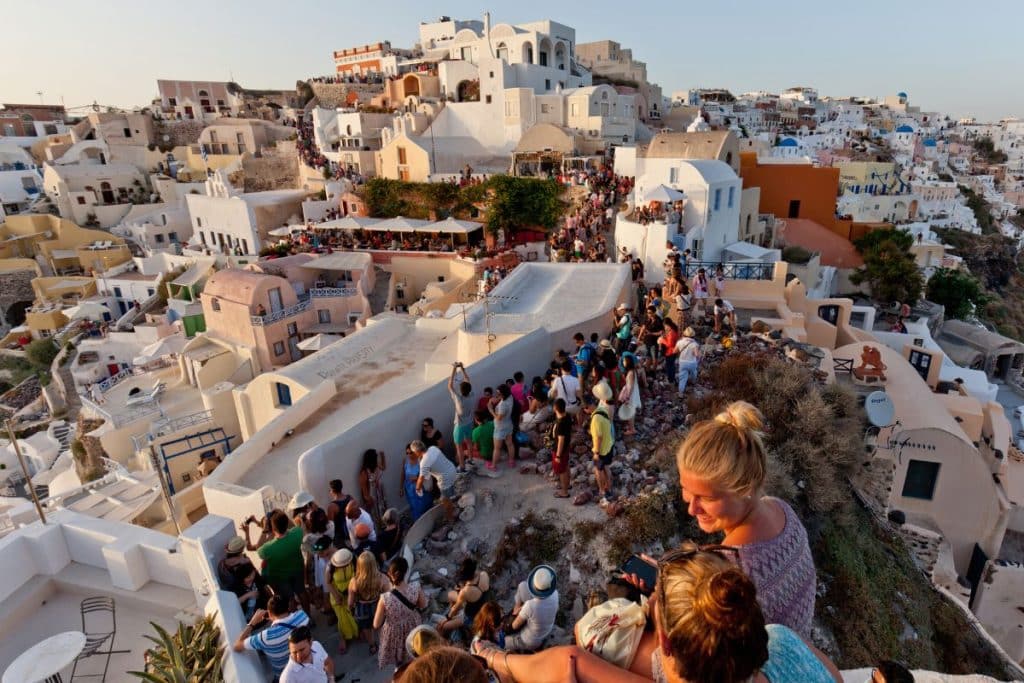Just two weeks into the summer season, some places are already experiencing a very high volume of travelers – sometimes more than they can accommodate. The Acropolis in Athens, which has reported worrisome numbers so far in 2023, is one such example.
The ancient monument recorded more than 14,000 visitors in May, according to the state-owned company responsible for maintaining the country’s cultural treasures. This figure is 70% higher than in 2022 and is in line with the norms for August, the biggest month. Even UNESCO has expressed concern about the structural preservation of the Acropolis, which is recognized as a World Heritage Site.
As Euronews reports, World Heritage Watch, a non-governmental organization that supports UNESCO, has pointed out that the Acropolis does not have the tourism control plans required by the UN World Heritage Convention. Greece has acceded to the convention by signing it. According to proposals published by the Greek Ministry of Culture, a time window system will be introduced to better control the massive influx of tourists. Greek authorities expect to exceed the 31.3 million arrivals registered in 2019, despite the difficulties that overtourism creates.

For its part, France is considering a campaign to “discourage” travelers from visiting some already crowded places, according to Olivia Grégoire, Minister of Trade, Crafts, and Tourism. She claims that barely 20% of the country’s total area is visited by 80% of all visitors.
For now, the French government has only announced the formation of a team to identify which places are most at risk and to draw up plans to promote off-peak travel. There will also be a communication campaign based on travel influencers to showcase crowded postcards and alternative locations in the country.
Taxes to fight overtourism?
Venice, Amsterdam, and Edinburgh have recently been added to the list of known places that charge a fee. While some visitors object to the new levy, others understand the rationale behind the program, which is intended to help local economies and combat overtourism.
Locals in well-known tourist destinations such as Barcelona and Venice are excellent examples of those affected by the noise and inconvenience that too many visitors bring: higher rents and prices in restaurants and stores, and congestion of public services. As a result, locals, fed up with their homes being overrun and local prices being driven up, have sparked a growing backlash against tourism in recent years.
The latest city to propose the introduction of a tax is London. It could raise “hundreds of millions of pounds” annually, Professor Tony Travers of the London School of Economics told Euronews in July 2022. According to Travers, the money could be used to support public transport systems that are struggling due to low ridership caused by the pandemic.
Usually, tourist taxes are a relatively small amount – less than the price of a drink at a neighborhood pub. These taxes are easy to collect and can be quickly adjusted to accommodate different categories of travelers. Despite the low value per visitor, local officials believe the tax is still useful in combating over-tourism.

